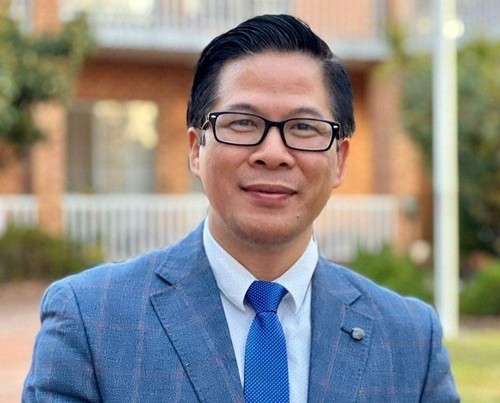 Dr. Hai Hong Nguyen, a senior lecturer at VinUniversity in Hanoi and a Visiting Fulbright Scholar at American University in Washington DC Dr. Hai Hong Nguyen, a senior lecturer at VinUniversity in Hanoi and a Visiting Fulbright Scholar at American University in Washington DC |
What challenges will Trump face in the US following the election?
According to final voting results, former President and Republican candidate Donald Trump received more than 73 million popular votes and 301 electoral votes respectively, making him return to the White House for a second non-consecutive term. Immediately after he reached the milestone of 270 electoral votes, Mr. Trump delivered a victory speech to his supporters from his campaign headquarters in Florida, calling this a historic win and moment in the history of the United States of America. Vice President and Democratic candidate Kamala Harris later called Trump to congratulate his victory and made a promise on peaceful transfer of power.
Indeed, a former president who lost the last election, survived two attempted assassinations, subjected to two impeachments and dozens of legal charges, Trump's victory also put an end of the most divisive and most costly election in the history of the US thus far.
In his victory remarks, he said his administration will serve and unite all American people. Undoubtedly, we hear this from all presidents-elect. However, given the split in policy directions on many domestic issues between the two parties, ranging from abortion, climate, energy, economy, health care, immigration, crime, this is a really challenging task for Trump to unite the country in the months and years ahead. Whether Trump could unite and heal the country as he spoke in his victory speech it depends on his actions.
How will Trump’s victory affect the global landscape?
Trump's victory will absolutely have an impact on the world's economy and hot spots around the globe, from the Russia-Ukraine conflict in Europe, Israel-Hamas and Iran in the Middle East, North Korea's nuclear issue, the US-China trade war, NATO, the South China Sea (East Sea), and so on. Trump's statements during his campaign have indicated that he would take a different approach from the Biden administration. He will continue his previous protectionist trade policy and impose more tariffs on imports, not only from China but others alike. The world will witness an America under Trump that increases strength to protect itself first and trade-off benefits with other countries if they want to have the United States' protection.
What about US-Vietnam relations under the Trump administration?
Trump's "America First" policy will absolutely have an impact on Vietnam to some extent. It is too early to say how much Vietnam-U.S relations will be affected under the Trump administration. However, I think there would not be much negative impact given the foundation of the bilateral relations which have been built in the past 30 years. Moreover, Trump may be tough on the trade surplus issue, but I think he has high appreciation of Vietnam as Vietnam helped organize the 2nd Kim-Trump summit in Hanoi in 2019 and promptly delivered medical supplies to the US to assist it in response to COVID-19 at the Trump administration's request. Trump himself gave high appreciation of Vietnam on these issues.
Furthermore, it also depends on who will be in the Trump's team. There are some old faces like former National Security Adviser Robert O'brien, former Secretary of State Mike Pompeo, former Trade Representative Robert Lighthizer, who are potentially appointed to positions such as secretary of state, secretary of defence, trade representative or secretary of commerce. These guys already know Vietnam very well and support Vietnam-US relations.
In short, there are impacts, but Trump's Vietnam policy will not derail the comprehensive strategic partnership between the two countries.